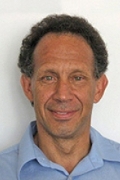Academy of Distinguished Alumni

Victor A. Zayas Ph.D., P.E.
Inducted to the Academy of Distinguished Alumni on
Victor A. Zayas received his Ph.D. (1980) degree in Civil (Structural) Engineering from the University of California, Berkeley. His Ph.D. thesis on seismic ductility design contributed to the development of today’s seismic building codes that are intended to prevent the earthquake-induced collapse of buildings, bridges, and industrial facilities. Dr. Zayas’ thesis work was recognized by the American Society of Civil Engineers (ASCE) for having “provided innovation in vision and lasting impact on design and construction.” In 1985, Dr. Zayas developed Friction Pendulum Seismic Isolation, a seismic design concept that is intended to prevent structural collapse, while at the same time limiting seismic damage, disruption, and economic loss. Friction Pendulum technology is now used in major structures in more than 20 seismically-active countries around the globe. In 2006, he further advanced resilient seismic design with the development of the Triple Pendulum Bearing System.
In recognition of Dr. Zayas’ contributions to safe and resilient structural design, the Structural Engineers Association of Northern California (SEAONC) in 2011 awarded him its “Lifetime Achievement Award for outstanding achievement in structural engineering,” stating that “Victor Zayas has changed the practice of structural engineering for the better.” This prestigious award has been granted only 11 times during SEAONC’s 78 year history.
Dr. Zayas began his engineering education in 1966, and his career as a civil engineer in 1973 working in construction. Since 1985, he has served as President and Founder of Earthquake Protection Systems, Inc. He has dedicated the company’s mission to implementing seismic resilient construction worldwide. In that effort, he has for many years collaborated with faculty from the U.C. Berkeley Department of Civil and Environmental Engineering to advance resilient and sustainable construction using Friction Pendulum technology. He and his firm have supported research at Berkeley for more than 25 years. This ongoing collaborative research effort has contributed towards the goal of achieving a resilient and sustainable society with minimal economic loss and disruption caused by earthquakes.
